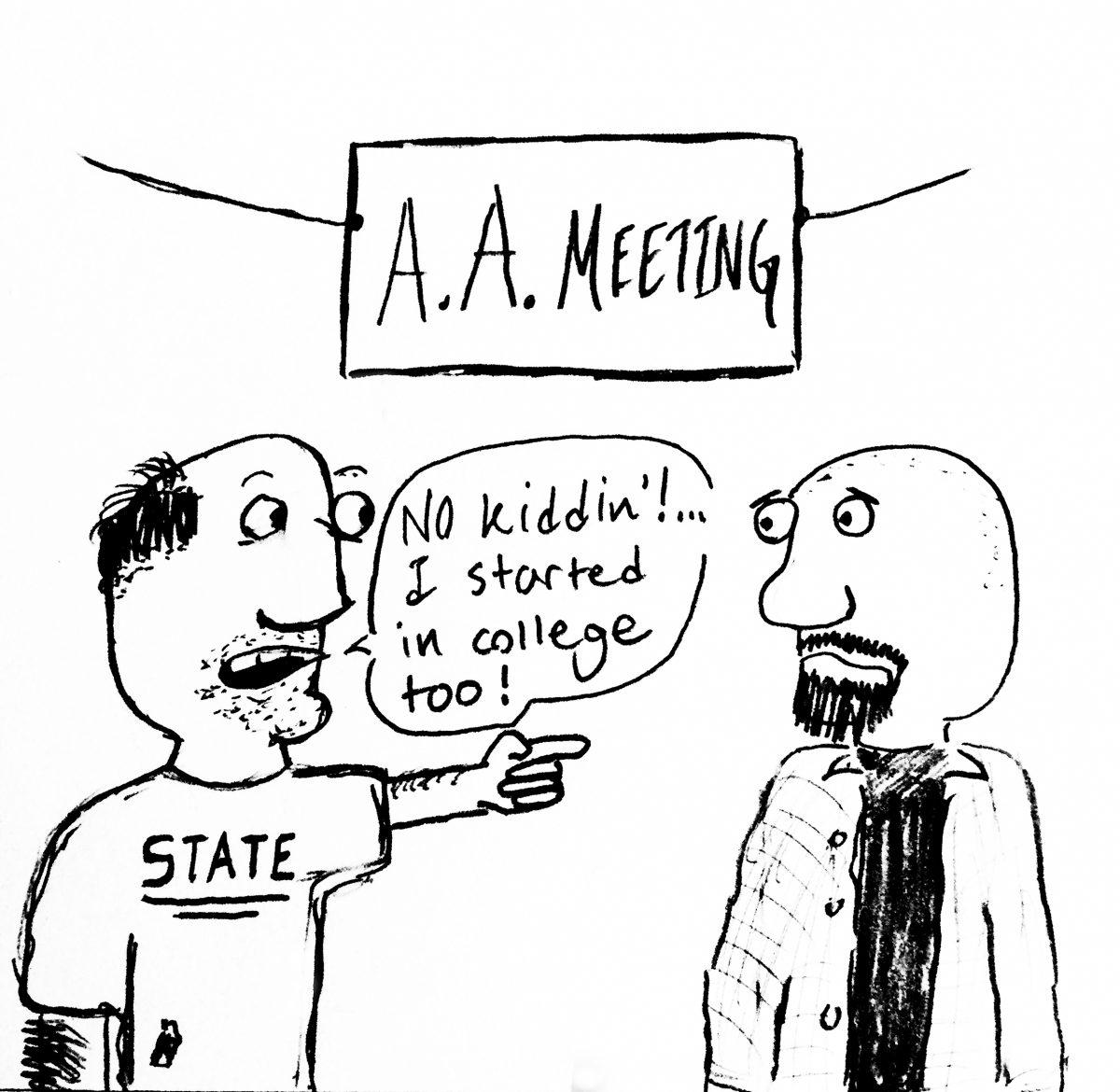COURTESY // Michael Morelli
Symptoms may include headaches, nausea, loss of memory, loss of academic, professional and financial stability as well as loss of loved ones – and even death. Perhaps if alcohol introduced itself in a drug commercial, college students would think twice about over-indulging.
According to the National Institute on Alcohol Abuse and Alcoholism, 1,825 college students between the ages of 18 and 24 die each year from alcohol-related unintentional injuries.
For many college students, drinking heavily is just a part of the college experience. Some justify getting wasted every week because college is said to be a time to let loose and experience things you haven’t before.
That being said, there is a difference between drinking casually and abusing alcohol.
“Once I went to a bonfire party, and people pressured me to chug vodka from the bottle,” said a Sonoma State University sophomore business major. “I blacked out. I don’t remember much from that night, but my friend explained everything the next day. Apparently I started crying and sat near the fire pit until someone came over to check on me. When I tried to stand up, I almost fell into the fire. Thankfully my friend caught me. I threw up about seven times that night.”
Accounts like this aren’t rare in campus conversation.
Since alcohol is so easily accessible and so often consumed by college students, it’sdifficult to notice the signs of alcohol abuse.
According to the National Institute on Alcohol Abuse and Alcoholism, binge drinking is when the consumption of alcohol brings one’s blood alcohol concentration level to 0.08 percent or higher. This concentration level is generally reached by having five or more drinks for men, or four or more drinks for women within a two-hour period.
College students are, understandably, under a great amount of pressure, keeping up with classes, work, as well as having friends and family issues. Pile this all on top of navigating through one of the biggest transitional phases in life, you may feel hopeless and stressed out.
But when trying to forget about each day turns into forgotten nights, you’re just adding fuel to the fire.
The signs of alcohol abuse in college students include: Decreased interest in classes and extracurricular activities, drastic change in grades or academic performance, shifts in sleeping patterns or fluctuations in weight, time spent in new social circles, especially among those who have a reputation of abuse, withdrawing from friends or acting secretive, unexplained changes in behavior or personality, uncharacteristic mood swings, depression or irritability.
When you add alcohol to an already unstable situation, you aren’t providing a long-term solution, you’re making it worse. Drinking can even affect those around you Repeatedly giving that responsibility to your friends is inconsiderate and makes you look incredibly disrespectful of others around you. Self control is key.
These all-too-common drinking habits can also transfer into life after college. If you learn to drink to “solve” your problems in school, you will not suddenly unlearn that habit when you graduate.
This is often times how excessive drinking turns into alcoholism, a disease in which you become mentally and physically dependent on alcohol. In short, the spur-of-the-moment decisions that you make in college can affect the rest of your life.
The truth is, drinking in moderation along with knowing the risks that come with drinking is the safest way to enjoy alcohol, even in college. Each person has his or her limit when it comes to alcohol and college might be a good time and place to discover your limit.
We don’t want to act as your parents or claim that alcohol will dissolve your future and ruin your life. We are acting as the friend who holds your hair back as you throw up after a night of heavy drinking and reminds you about it the next day.



































